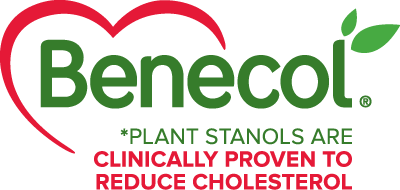We’re guessing you’ve set these two New Year’s resolutions before: 1) lose weight 2) go to the gym. Maybe you’ve set both. But how long did you stick to them? (We won’t count 2020!). Probably not very long. The problem with setting a New Year’s resolution to “lose weight” is that it’s not very specific and it puts the focus on the result (weight loss) instead of the habits you need to implement to get the result.
5 Heart-Healthy Fruits and Vegetables to Add to Your Thanksgiving Menu
Acorn squash is high in magnesium, vitamin A, and vitamin C. Vitamin C is an antioxidant that keeps the immune system healthy, something we’re all focused on this year. One cup of cooked acorn squash delivers a whopping 9 grams of fiber - both insoluble and soluble. Soluble fiber is the type that lowers LDL cholesterol.
Baking Swaps for a Healthier Heart
The leaves are changing, the weather is getting cooler, and ‘tis the season for baking. Worried you’re going to sabotage your health goals from now until the end of the year? Don’t be! With a few simple swaps, you can enjoy your baked goodies and keep your heart healthy too.
Here are five simple healthy baking swaps.
Does intermittent fasting improve heart health?
Intermittent fasting is growing in popularity, but is it good for your heart? Can it lower your cholesterol? Our Registered Dietitian answers all of your intermittent fasting questions below!
Intermittent fasting is simply when you alternate periods of fasting - or not eating - with periods of eating. Traditionally, people have fasted for religious reasons, but intermittent fasting is gaining popularity due to claims that it leads to weight loss, lower cholesterol and blood pressure, and longer lifespan.
Low Cholesterol Breakfast Recipes
Is breakfast really the most important meal of the day? We answer that question and share our favorite low cholesterol breakfast recipes.
To eat breakfast or not eat breakfast?
You’ve probably heard - “breakfast is the most important meal of the day.” But is it really? Like a lot of things in nutrition, it depends.
A 2019 study published in the British Medical Journal found that eating breakfast was actually associated with weight gain and eating more total calories in a day. Yikes. Intermittent fasting is also associated with weight loss.
Summer Recipes to Keep Cholesterol Low
8 Snacks Low in Cholesterol
Cholesterol is only found in animal products, so any plant-based foods, - like fruits, vegetables, and nuts - are naturally cholesterol-free. However, research shows that saturated and trans fats are the culprits for raising cholesterol so it’s important to choose foods low in these fats. These eight snacks are naturally low in cholesterol, plus some of them may actually help lower your cholesterol (we like that!).
Can the Mediterranean Diet Lower Cholesterol?
What is the Mediterranean Diet?
The Mediterranean diet is the traditional way of eating of those living in countries around the Mediterranean Sea. It includes eating plenty of fruits, vegetables, whole grains, and healthy fats; eating chicken, fish, eggs, and beans weekly; eating moderate amounts of dairy; and limiting red meat and processed foods. The Mediterranean diet is more of a lifestyle that also includes eating socially with others, enjoying a glass of red wine, and being physically active most days.
Contrast that with a Western diet, which is how most people in the United States eat, and is characterized by consuming a lot of animal products like meat and dairy, along with refined carbohydrates and processed foods high in sugar and unhealthy fats.
How Stress Affects Cholesterol
April is Stress Awareness Month, and with the sudden changes to our lives from COVID-19, it’s timely to talk about the effect that stress has on your heart and cholesterol, plus how to manage stress.
What is Stress?
Stress is the body’s response to a trigger or stressor. Think back to caveman days when we had to hunt for food. If a lion jumped out (the trigger), it would set off a chain of reactions in the body - heart would beat faster, blood pressure would rise, and you’d have to make an immediate decision - will you fight it or run? This is also known as the “flight or fight” response. And it’s essential for survival.
Plant Stanols and Sterols
What are plant stanols and sterols?
Plant stanols and sterols are naturally occurring compounds in plants that are structurally similar to cholesterol. Collectively they are referred to as phytosterols. Because phytosterol molecules are similar to cholesterol, they block the absorption of cholesterol into the bloodstream, thereby lowering total and LDL (“bad”) cholesterol. They have no effect on HDL (“good”) cholesterol or triglycerides.











